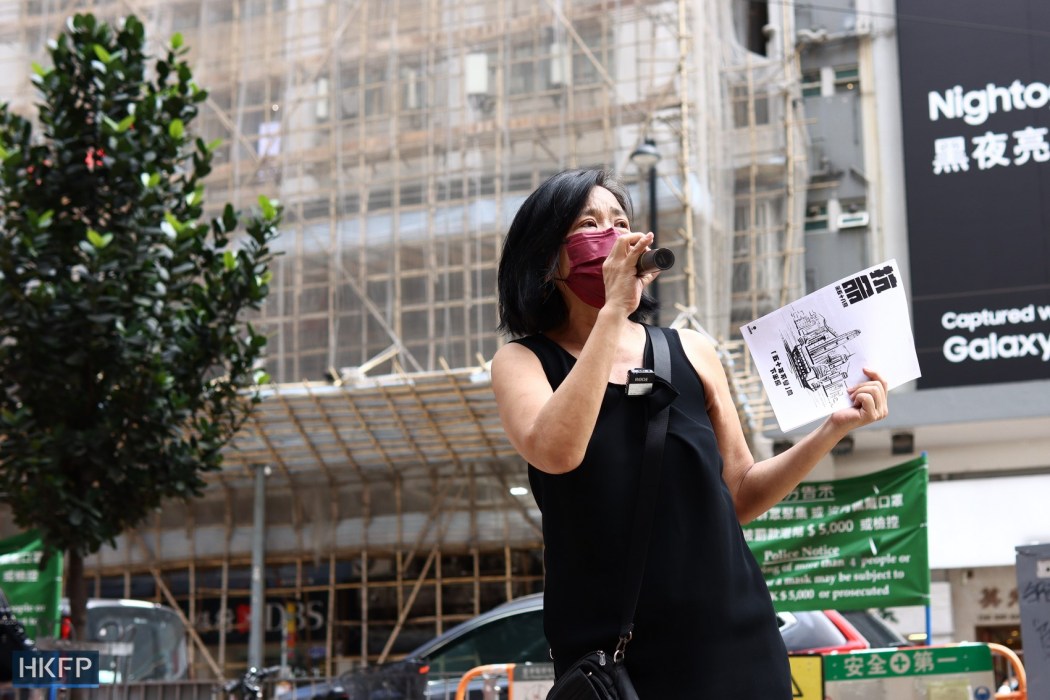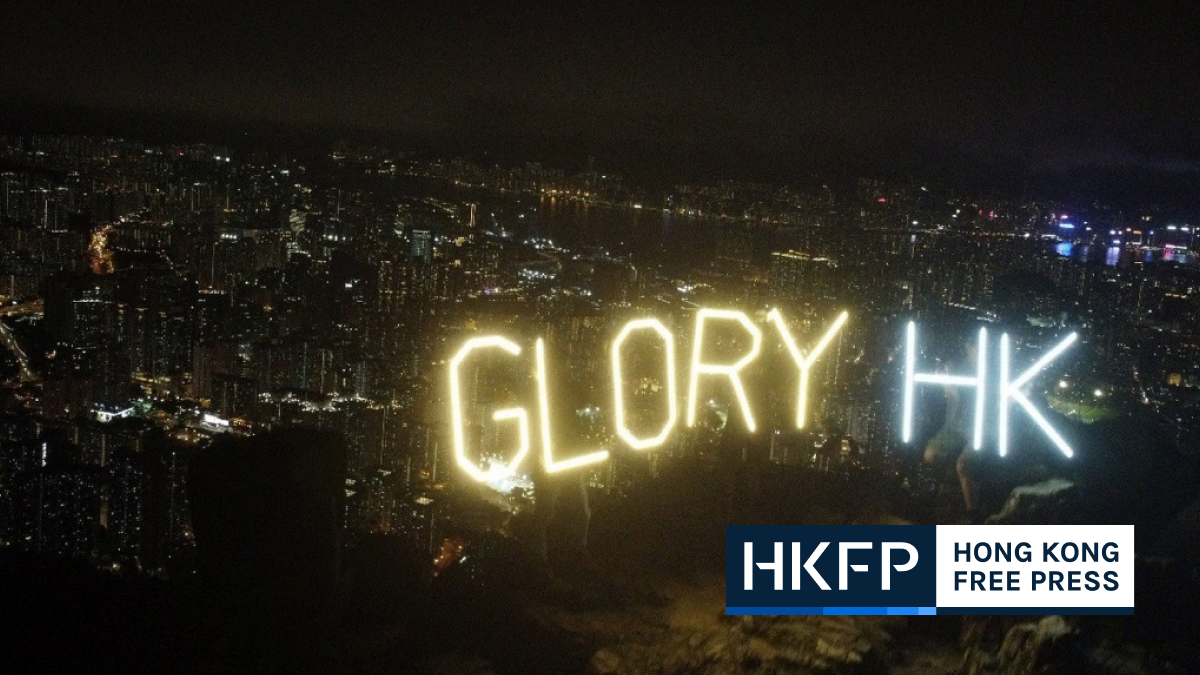Hong Kong national security police have searched the homes of six members of the League of Social Democrats (LSD), one of the last pro-democracy groups still active in Hong Kong, ahead of the 25th anniversary of the city’s return to Chinese rule.

LSD chairwoman Chan Po-ying said on Thursday that officers from the police National Security Department had conducted a search of her residence with a warrant the previous day. The Force also searched the residences of five other LSD members: Raphael Wong, Avery Ng, Tsang Kin-shing, Dickson Chau and Yu Wai-pan.
Chan, wife of jailed lawmaker “Long Hair” Leung Kwok-hung, said police had not taken any objects from their homes. The six LSD activists were taken to different police stations for a meeting, she said, during which they were warned not to hold any protest activities on July 1, when Hong Kong marks 25 years since its Handover from Britain to China.
“The details of the meeting cannot be disclosed. Also, everyone is being followed and watched by the police,” Chan said in a statement.

She added that the police had called in more than 10 LSD members and volunteers over the past two days, saying the group “deeply regrets” the move which amounted to “seeing the right to petition peacefully as confronting a dangerous enemy.”
HKFP has reached out to the police for comment and confirmation.
Former LSD chairman Avery Ng told HKFP on Thursday that he was being monitored by the authorities, with people he believed to be police officers stationed near his home. The LSD activist wrote on social media on Wednesday that he was “imprisoned,” without detailing his condition. He later clarified that he was not under house arrest.

“Sorry, I am imprisoned,” Ng’s original post read. “Those who understand would understand.”
Ng told people to relax, saying he was fine. In response to HKFP’s enquiries, the ex-LSD chief said he and some other members of the activist group were “under constant surveillance” ahead of the Handover anniversary on Friday but refused to disclose further information, saying he “could not comment too much.”
“It is obvious that right now in Hong Kong, basic personal freedom is not protected,” said Ng, who was released from prison on April 30 after being sentenced to 14 months and 14 days behind bars on protest-related charges.
Hong Kong is currently on high security alert as Chinese leader Xi Jinping is expected to visit for the July 1 celebrations and to swear in chief executive John Lee and his cabinet.
Police said on Tuesday that areas where Xi is set to stay, visit and pass by would be sealed off as a “core security zone,” with roads, footbridges and flyovers closed. Only accredited individuals and vehicles would be allowed to enter.
The authorities also banned drone use anywhere in Hong Kong during the visit, while temporary restricted flying zones would be set up near Victoria Harbour and several other designated areas.

The LSD on Tuesday said it would not hold any protest on the anniversary after some of its volunteers were called in to meet officers from the police National Security Department.
In response to HKFP’s enquiries, police did not confirm whether such meetings were held. They said they would not comment on individual cases, adding police operations were conducted “on the basis of actual circumstances and according to the law.”
Support HKFP | Policies & Ethics | Error/typo? | Contact Us | Newsletter | Transparency & Annual Report | Apps
Help safeguard press freedom & keep HKFP free for all readers by supporting our team
























